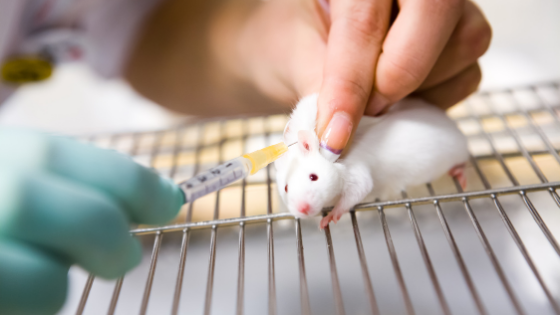Now, many scientific institutes conduct research on live animals. Some people regard it as cruel and unnecessary while others believe it is justified in the interest of human welfare. Discuss the two views and give your reasons. Give reasons for your answer and include any relevant examples from your own knowledge or experience.
Understanding the Moral Landscape of Animal Research
When we peel back the layers of scientific endeavor and peer into the realm of animal research, we are confronted with a complex tapestry of ethical considerations. The use of live animals for research purposes casts a long shadow on our moral landscape, raising questions that are as old as the practice itself. At the heart of the debate lies a fundamental concern: do the potential benefits to human health justify the means, especially when those means involve the suffering of other sentient beings?
The Sentience of Animals and the Moral Implications
To fully grapple with this moral quandary, we must first acknowledge the capacity for suffering in animals. Sentience is not a unique human attribute; it is shared across a spectrum of animal species used in research. This shared capacity for pain, distress, and suffering necessitates a moral framework within which the ethicality of animal research can be assessed. The recognition of animal sentience invites us to consider their rights and the duties we owe them as fellow beings capable of experiencing harm.
The Three Rs Principle: A Guiding Ethos for Ethical Research
The Three Rs principle (Replacement, Reduction, and Refinement) emerges as a guiding ethos in the pursuit of more ethical research practices. This framework not only acknowledges the ethical implications of animal research but also offers a pathway toward minimizing harm. ‘Replacement’ suggests seeking alternative methods that do not involve animals. ‘Reduction’ calls for strategies to decrease the number of animals used to the minimum required to obtain valid results. ‘Refinement’ recommends enhancing animal welfare and minimizing suffering by improving all aspects of animal care and the scientific procedures applied.
The Ethical Battleground: Arguments For and Against
The battleground of ethics is marked by conflicting perspectives. On one side are proponents who argue that the sacrifice of animal welfare is a necessary evil for the greater good of human and animal health. They assert that the complexity of living organisms cannot be fully replicated by alternative methods, making live animal research indispensable.
Conversely, a growing contingent of ethicists, scientists, and members of the public challenge this view, deeming the use of animals in research both unnecessary and inherently cruel. They argue that the infliction of pain and suffering, the deprivation of natural behaviors, and the ultimate sacrifice of life cannot be morally justified, especially in an era burgeoning with alternative research methodologies.
A Closer Look at Pain, Suffering, and Autonomy
Dissecting the ethical arguments against animal research brings us face-to-face with the stark reality of animal suffering. Pain, both physical and psychological, is not a trivial concern—it is the primary ethical issue raised by animal welfare advocates. Furthermore, the lack of consent and the violation of animals’ autonomy amplify the moral discomfort surrounding animal research. Unlike human participants in research, animals cannot volunteer, consent, or understand the purpose of their suffering, placing the burden of ethical justification squarely on human shoulders.
The Moral Responsibility of Using Animals for Human Benefit
Weighing the moral implications of using animals for the benefit of human society is a Herculean task. The scales of ethics must balance the advancement of human health and knowledge against the moral cost of animal suffering. Can the ends ever justify the means? This question remains at the crux of the ethical debate.
In conclusion, the ethical considerations in animal research are multifaceted and deeply charged with emotional and moral significance. As we navigate through these turbulent waters, it is incumbent upon us to critically evaluate our moral compass and the direction in which it points us in the context of animal research.
Read Also: Imagination Is More Important Than Knowledge
📍 English Language Educator | Blogger & Content Strategist | 7+ Years in Educational Blogging
Nosheen Bashir is a dedicated English teacher and experienced blogger with over seven years of expertise in content creation and educational writing. Passionate about language, literature, and effective communication, she combines her teaching experience with blogging skills to create insightful, research-backed content that helps learners and educators alike.
🔹 Expertise & Achievements:
✔ English Language Education: A skilled educator with years of experience in teaching English grammar, literature, and communication skills to students of varying levels.
✔ Educational Blogging: Running a successful blog for 7+ years, delivering well-structured, engaging content on language learning, writing techniques, and academic success.
✔ SEO & Content Strategy: Specializes in creating high-ranking, authoritative articles that follow Google’s EEAT principles, ensuring content that is both informative and search-friendly.
✔ Student-Centric Approach: Committed to making English easier, engaging, and accessible, helping readers and students improve their language proficiency.
🚀 With a passion for teaching and writing, Nosheen Bashir is dedicated to crafting educational content that empowers students, teachers, and language enthusiasts worldwide.











